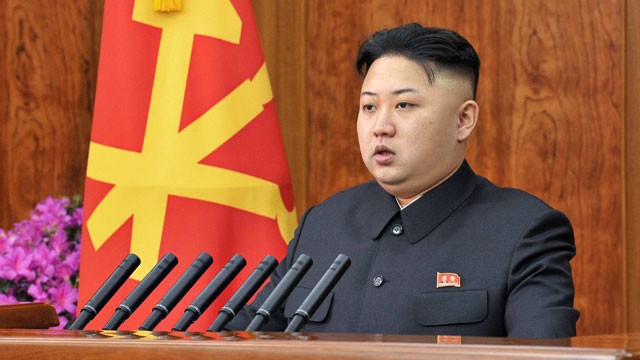
In July 2009, Brazil’s Foreign Ministry announced the inauguration of an embassy in Pyongyang, making Brazil one of only 25 countries with an embassy in the Democratic People’s Republic of Korea, generally known as North Korea. At the time, many observers (including myself) criticized the decision as misguided and dangerous: Why would Brazil establish ties with North Korea’s bizarre regime? Why would it want to send such a strange signal to the international community? The step seemed to be yet another sign that President Lula was ever more willing to team up with the world’s nastiest dictators.
Few knew at the time that it had been President Fernando Henrique Cardoso who decided to open an embassy in North Korea in the context of South Korea’s Sunshine Policy towards the North, in a move welcomed by leaders in Seoul. (Sunshine Policy was the name of South Korea’s policy towards North Korea from 1998 until 2008. Articulated by South Korean President Kim Dae Jung, the policy temporarily resulted in greater political and cultural contact between the two Koreas). While the decision had been taken in Brasília at the height of rapprochement, the embassy only opened in 2009, by the time Sunshine Policy had already been declared a failure in the South.
Yet Brazil decided to move ahead, four years after the North Korean embassy had opened in Brasília. Since then, Brazil is the only South American country to have an embassy in Pyongyang (the only other country in the Western Hemisphere is Cuba). Most other countries with embassies in North Korea are Asian or Middle Eastern (13, including China, Russia, Mongolia, Indonesia, Syria and Palestine) and European (7, including Germany, the United Kingdom, the Czech Republic and Sweden). Clearly, many important countries do not bother to have an embassy in North Korea.
Furthermore, Pyongyang is no popular spot among diplomats, and Japan and South Korea (both key economic partners for Brazil) have grown more critical of any country’s attempts to engage North Korea. So is it really worth the hassle? Brazil’s Foreign Ministers — from Patriota to Aloysio Nunes — repeatedly underlined the importance of maintaining a presence in one of the world’s most isolated regimes in order to have access to first-hand information.
They clearly have a point. During my week-long visit to Pyongyang in 2013, I realized just how ill-informed the international media is about the situation on the ground in North Korea. No country with global ambitions, such as Brazil, can afford to rely on impossible-to-verify second-hand information in one of the most complex political hot spots on earth.
One example makes this clear. Despite periodically rising tensions copiously reported abroad, spending time in Pyongyang allows any observer to appreciate the small changes that are occurring in North Korean society. When Brazil’s first Ambassador arrived in North Korea in 2009, he had to hand over his cell phone at the airport. Four years later, boarder officials barely cared to look into my bags, and I entered the country with several electronic devices, including my iPhone. Foreigners can buy and use SIM cards, and plenty of North Koreans can be seen chatting on their cell phones in Pyongyang (though foreigners and locals still use separate networks and cannot call each other). There were, in 2013, 2 million cell phone users in the country.
While private business was non-existent only a few years ago, small markets had sprung up throughout the city. During an evening stroll along Taedong River, we encountered small entrepreneurs selling beverages and ice cream. Diplomats are allowed to roam freely throughout the city (even though their homes are surely bugged). There are signs of a growing awareness among North Korean policy makers that the country’s economic model is unsustainable. There is no way of being informed about these developments without an embassy in the country, particularly in the case of North Korea, which is so difficult to access for independent observers.
None of this is any excuse for the human rights abuses and North Korea’s role as an international troublemaker. The world should continue to pressure North Korea’s leadership to address these grievances and help defuse tension in the region. Yet this cannot be done effectively without understanding the situation on the ground and promoting people-to-people contact among foreigners and North Koreans. It seems mind-boggling how the United States could seriously attempt to understand the North Korean regime without a diplomatic presence in the country. Actors such as Brazil are right to establish channels of communication that may serve for many purposes in the future – particularly because North Korea’s fate may strongly impact Asia’s geopolitical situation, which in turn is intimately tied to the rise of China, Brazil’s most important trading partner.
One conversation at Pyongyang’s Academy of Agricultural Science served as a particularly strong reminder of how important, and under-exploited, people-to-people exchanges with pariah states like North Korea may be. Upon introducing myself to my interlocutors, two researchers, they seemed flabbergasted to learn that I worked for an institution that was not part of the government. “It is private”, I repeated several times, as they stared at me in disbelief. Putting North Korean citizens in touch with the outside world may be a small but ultimately important contribution towards helping one of the most isolated regimes in the world slowly open up.
Read also:
From Taksim Square to Paulista Avenue
The case for a BRICS visa-free travel agreement
Photo credit: AFP








